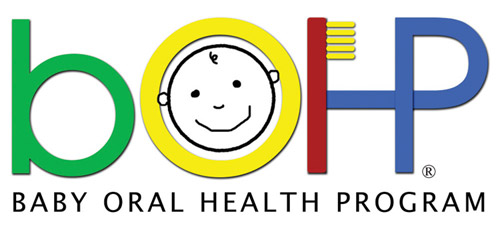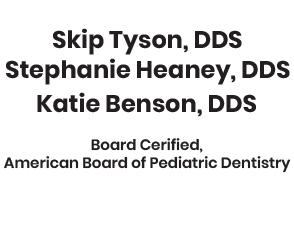Baby's 1st Birthday Dental Care

Baby Oral Health Exams
Pediatric Dental Studies have shown that children seen at an early age are more likely to grow up cavity free with great oral health. This one-on-one, first birthday dental care visit will cover issues related to your child’s diet, snacking, habits and overall health of their mouth, teeth and gums. Specific prevention recommendations will also be made for your child. Our office enjoys seeing young children for their first pediatric dental visit.

A Child’s First Dental Visit
Your child’s first dental visit should be scheduled around his/her first birthday. The most important part of the visit is getting to know and becoming comfortable with their pediatric dentist and his or her staff. A pleasant, comfortable first dental visit builds trust and helps put your child at ease during future dental visits.
f you’d like to schedule your child’s first Baby Oral Health Exam, please go to our Appointment Request Form!
More Information
Why Primary Teeth are Important
Primary teeth are important for several reasons. Foremost, good teeth allow your child to eat and maintain good nutrition. Healthy teeth allow for clear pronunciation and speech habits. The self-image that healthy teeth give your child is immeasurable. Primary teeth also guide eruption of the permanent teeth.
Good Diet and Healthy Teeth
The teeth, bones and soft tissue of the mouth require a healthy, well-balanced diet. A variety of foods from the five food groups helps minimize (and avoid) cavities and other dental problems. Most snacks that children eat cause cavities, so your child should only receive healthy foods like vegetables, low-fat yogurt and cheeses, which promote strong teeth.
Infant Tooth Eruption
Your child’s teeth actually start forming before birth. As early as 4 months of age, the primary or ‘baby’ teeth push through the gums—the lower central incisors are first, then the upper central incisors. The remainder of the 20 primary teeth typically erupt by age 3, but the place and order varies.
Permanent teeth begin eruption around age 6, starting with the first molars and lower central incisors. This process continues until around age 21. Adults have 28 secondary (permanent) teeth—32 including the third molars (wisdom teeth).
Teething
Normally the first tooth erupts between ages 6 to 12 months. Gums are sore, tender and sometimes irritable until the age of 3. Rubbing sore gums gently with a clean finger, the back of a cold spoon or a cold, wet cloth helps soothe the gums. Teething rings work well, but avoid teething biscuits—they contain sugar that is not good for baby teeth.
While your baby is teething, it is important to monitor the teeth for signs of baby bottle decay. Examine the teeth, especially on the inside or the tongue side, every two weeks for dull spots (whiter than the tooth surface) or lines. A bottle containing anything other than water and left in an infant’s mouth while sleeping can cause decay. This happens because sugar in the liquid mixes with bacteria in dental plaque, forming acids that attack the tooth enamel. Each time a child drinks liquids containing sugar, acids attack the teeth for about 20 minutes. When awake, saliva carries away the liquid. During sleep, the saliva flow significantly decreases and liquids pool around the child’s teeth for long periods, covering the teeth in acids.
Infant’s New Teeth
The primary, or ‘baby,’ teeth play a crucial role in dental development. Without them, a child cannot chew food properly and has difficulty speaking clearly. Primary teeth are vital to development of the jaws and for guiding the permanent (secondary) teeth into place when they replace the primary teeth around age 6.
Since primary teeth guide the permanent teeth into place, infants with missing primary teeth or infants who prematurely lose primary teeth may require a space maintainer, a device used to hold the natural space open. Without a maintainer, the teeth can tilt toward the empty space and cause permanent teeth to come in crooked. Missing teeth should always be mentioned to your pediatric dentist. The way your child cares for his/her primary teeth plays a critical role in how he/she treats the permanent teeth. Children and adults are equally susceptible to plaque and gum problems—hence, the need for regular dental care and dental checkups.
Preventing Baby Bottle Tooth Decay
Tooth decay in infants can be minimized or totally prevented by not allowing sleeping infants to breast or bottle-feed. Infants that need a bottle to comfortably fall asleep should be given a water-filled bottle or a pacifier. Our pediatric dental office is dedicated to fighting baby bottle tooth decay. Let us know if you notice any signs of decay or anything unusual in your child’s mouth.

